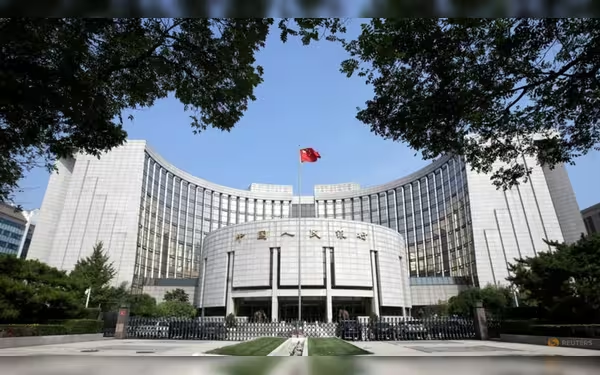Saturday, November 16, 2024 07:55 PM
China Implements Stimulus Measures to Revitalize Economy
- China announces significant interest rate cuts to boost economy.
- New measures aim to enhance consumption and investment.
- Government plans to reduce mortgage interest rates for millions.
 Image Credits: channelnewsasia
Image Credits: channelnewsasiaChina unveils bold stimulus measures, including interest rate cuts, to boost economic recovery amid significant challenges.
In recent years, China has faced significant economic challenges, including a prolonged debt crisis in the property sector, persistent deflationary pressures, and alarmingly high youth unemployment rates. As the world's second-largest economy, China has been striving to achieve a robust recovery following the pandemic. However, the government has set an ambitious target of five percent growth for 2024, a goal that many analysts consider overly optimistic given the current economic headwinds.
On September 24, 2023, China took decisive action to address these issues by unveiling a series of bold measures aimed at stimulating its struggling economy. Central bank chief Pan Gongsheng announced a comprehensive plan during a news conference in Beijing, which includes significant cuts to various interest rates. The primary objective of these measures is to "promote the expansion of consumption and investment," thereby encouraging economic activity.
Experts have described this stimulus package as the most significant since the early days of the pandemic. Julian Evans-Pritchard, Head of China economics at Capital Economics, noted that while these measures are substantial, they may not be sufficient to ensure a full economic recovery. He emphasized that a more robust fiscal support system is necessary, beyond the modest increase in government spending currently anticipated.
Among the key initiatives announced was a reduction in the reserve requirement ratio (RRR), which determines the amount of cash banks must hold in reserve. This change is expected to inject approximately one trillion yuan (around US$141.7 billion) in "long-term liquidity" into the financial market. Additionally, the government plans to lower the interest rates on existing mortgage loans, which will directly benefit around 150 million people across the country. This move is projected to reduce the average annual household interest bill by about 150 billion yuan.
Furthermore, Beijing is set to introduce a "swap programme" that will allow firms to obtain liquidity from the central bank. This initiative aims to significantly enhance companies' ability to access funds for purchasing stocks, thereby boosting market confidence. The initial scale of this swap programme is set at 500 billion yuan, with potential expansions in the future.
While these measures represent a significant step towards revitalizing China's economy, the effectiveness of such stimulus efforts remains to be seen. The challenges ahead are formidable, and it will require a concerted effort from both the government and the private sector to navigate through these turbulent times. As the global economy continues to evolve, the world will be watching closely to see how China adapts and responds to these pressing economic challenges.













